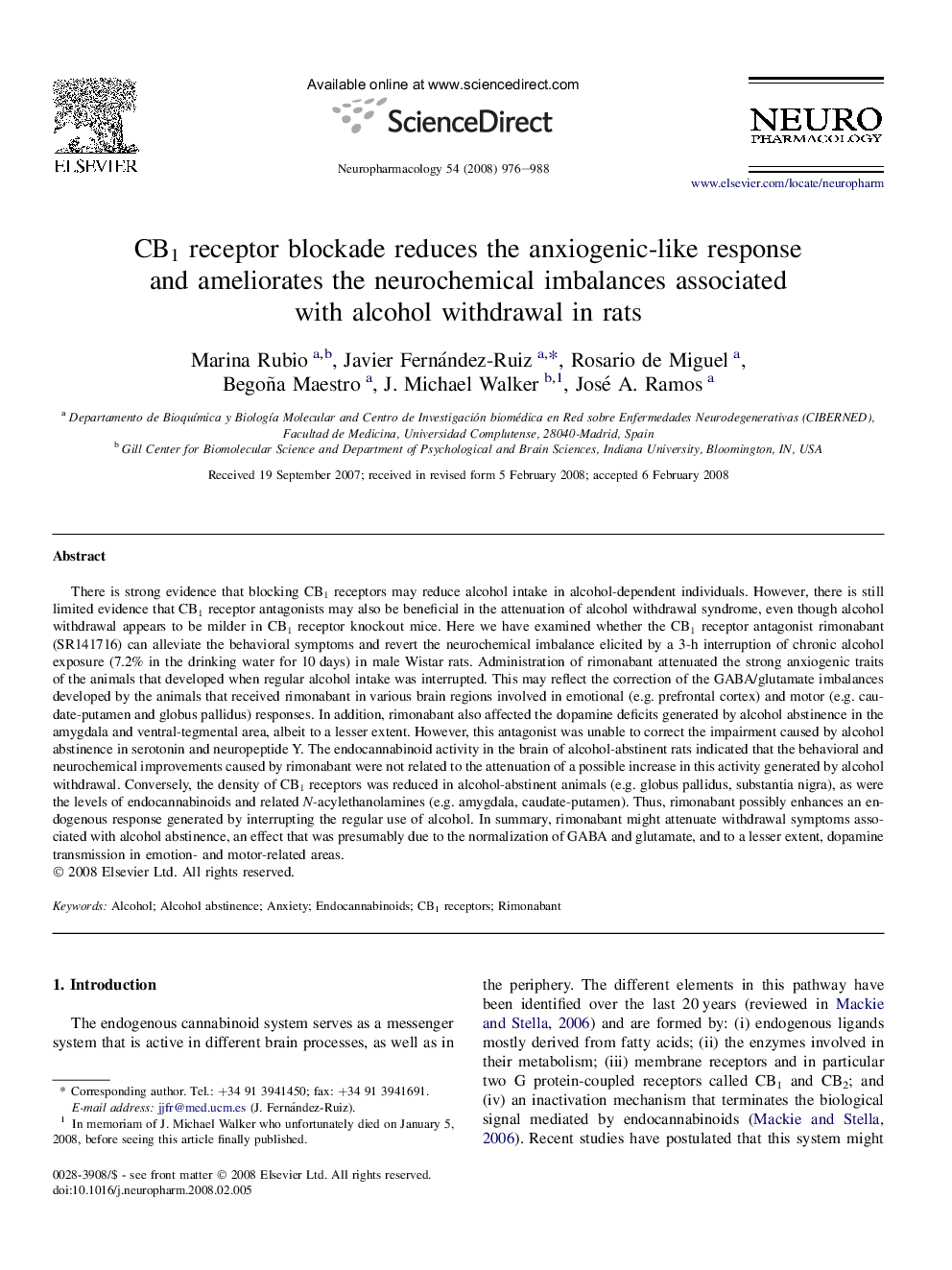| کد مقاله | کد نشریه | سال انتشار | مقاله انگلیسی | نسخه تمام متن |
|---|---|---|---|---|
| 2494940 | 1115587 | 2008 | 13 صفحه PDF | دانلود رایگان |

There is strong evidence that blocking CB1 receptors may reduce alcohol intake in alcohol-dependent individuals. However, there is still limited evidence that CB1 receptor antagonists may also be beneficial in the attenuation of alcohol withdrawal syndrome, even though alcohol withdrawal appears to be milder in CB1 receptor knockout mice. Here we have examined whether the CB1 receptor antagonist rimonabant (SR141716) can alleviate the behavioral symptoms and revert the neurochemical imbalance elicited by a 3-h interruption of chronic alcohol exposure (7.2% in the drinking water for 10 days) in male Wistar rats. Administration of rimonabant attenuated the strong anxiogenic traits of the animals that developed when regular alcohol intake was interrupted. This may reflect the correction of the GABA/glutamate imbalances developed by the animals that received rimonabant in various brain regions involved in emotional (e.g. prefrontal cortex) and motor (e.g. caudate-putamen and globus pallidus) responses. In addition, rimonabant also affected the dopamine deficits generated by alcohol abstinence in the amygdala and ventral-tegmental area, albeit to a lesser extent. However, this antagonist was unable to correct the impairment caused by alcohol abstinence in serotonin and neuropeptide Y. The endocannabinoid activity in the brain of alcohol-abstinent rats indicated that the behavioral and neurochemical improvements caused by rimonabant were not related to the attenuation of a possible increase in this activity generated by alcohol withdrawal. Conversely, the density of CB1 receptors was reduced in alcohol-abstinent animals (e.g. globus pallidus, substantia nigra), as were the levels of endocannabinoids and related N-acylethanolamines (e.g. amygdala, caudate-putamen). Thus, rimonabant possibly enhances an endogenous response generated by interrupting the regular use of alcohol. In summary, rimonabant might attenuate withdrawal symptoms associated with alcohol abstinence, an effect that was presumably due to the normalization of GABA and glutamate, and to a lesser extent, dopamine transmission in emotion- and motor-related areas.
Journal: Neuropharmacology - Volume 54, Issue 6, May 2008, Pages 976–988